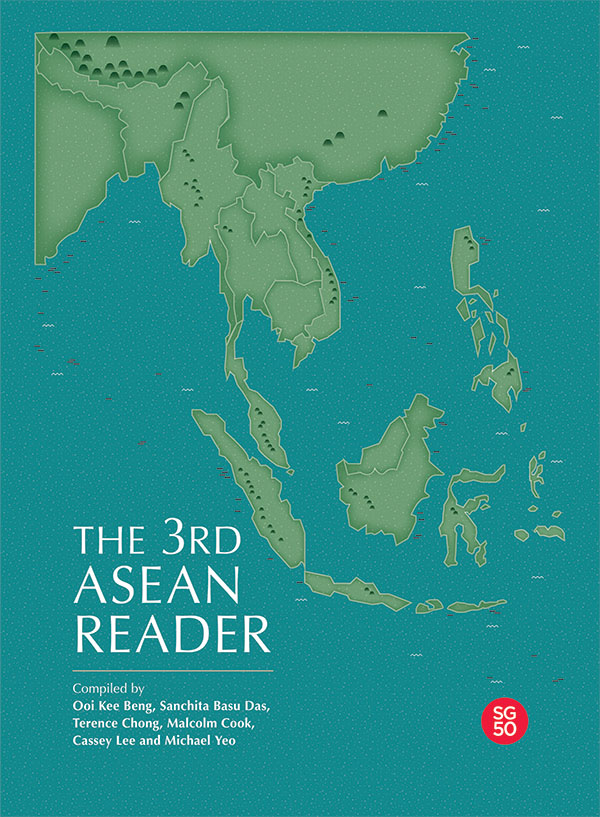Book contents
- Frontmatter
- Contents
- Preface
- Forewords to the First and Second ASEAN Reader: ASEAN: Conception and Evolution
- Forewords to the First and Second ASEAN Reader: ASEAN: The Way Ahead
- Forewords to the First and Second ASEAN Reader: New Challenges for ASEAN
- SECTION I ASEAN: THE LONG VIEW
- SECTION II COUNTRY ANALYSES
- Section Introduction by
- 5 Political Figures and Political Parties: Indonesia after Soeharto
- 6 Malaysia: Close to a Tipping Point
- 7 Thailand: The Military's Power Persists
- 8 Vietnam: Reforms Show Mixed Results
- 9 The Philippines: Challenging Conventional Wisdom
- 10 Myanmar: Late Embrace of ASEAN
- 11 Timor-Leste and ASEAN
- SECTION III COMPARATIVE ANALYSES OF THE REGION
- Southeast Asian Societies
- The Southeast Asian Economy
- Southeast Asian Politics
- SECTION IV INTERNATIONAL DEVELOPMENTS
- SECTION V INSTITUTIONS OF ASEAN
- SECTION VI ASSESSING ASEAN'S INTERNAL POLICIES
- ASEAN Political Security Community
- ASEAN Economic Community
- ASEAN Socio-Cultural Community
- SECTION VII ASSESSING ASEAN'S EXTERNAL INITIATIVES
- ASEAN Processes
- ASEAN's Major Power Relations
- SECTION VIII SOUTHEAST ASIA: PERIPHERAL NO MORE
- Bibliography
- The Contributors
- The Compilers
9 - The Philippines: Challenging Conventional Wisdom
from SECTION II - COUNTRY ANALYSES
Published online by Cambridge University Press: 22 June 2017
- Frontmatter
- Contents
- Preface
- Forewords to the First and Second ASEAN Reader: ASEAN: Conception and Evolution
- Forewords to the First and Second ASEAN Reader: ASEAN: The Way Ahead
- Forewords to the First and Second ASEAN Reader: New Challenges for ASEAN
- SECTION I ASEAN: THE LONG VIEW
- SECTION II COUNTRY ANALYSES
- Section Introduction by
- 5 Political Figures and Political Parties: Indonesia after Soeharto
- 6 Malaysia: Close to a Tipping Point
- 7 Thailand: The Military's Power Persists
- 8 Vietnam: Reforms Show Mixed Results
- 9 The Philippines: Challenging Conventional Wisdom
- 10 Myanmar: Late Embrace of ASEAN
- 11 Timor-Leste and ASEAN
- SECTION III COMPARATIVE ANALYSES OF THE REGION
- Southeast Asian Societies
- The Southeast Asian Economy
- Southeast Asian Politics
- SECTION IV INTERNATIONAL DEVELOPMENTS
- SECTION V INSTITUTIONS OF ASEAN
- SECTION VI ASSESSING ASEAN'S INTERNAL POLICIES
- ASEAN Political Security Community
- ASEAN Economic Community
- ASEAN Socio-Cultural Community
- SECTION VII ASSESSING ASEAN'S EXTERNAL INITIATIVES
- ASEAN Processes
- ASEAN's Major Power Relations
- SECTION VIII SOUTHEAST ASIA: PERIPHERAL NO MORE
- Bibliography
- The Contributors
- The Compilers
Summary
On the political and foreign policy fronts, the last decade in the Philippines has shown powerful continuities nationally and in relation to ASEAN with the preceding decade and the ones before that. These reinforce the widespread view that little changes in the Philippines and hence it is not worthy of as much attention as the more dynamic ‘core states’ of ASEAN and Southeast Asia.
Yet economically, the last decade has been one of significant and positive discontinuity nationally and in relation to Southeast Asia that challenges this engrained and often dismissive view of the region's second most populous country. This mixture of continuities and discontinuities is likely to persist in the coming decade, reaffirming the growing separation of the internationalizing Philippine private sector from national political travails and the need to revise the comfortable conventional wisdom about the Philippines.
POLITICAL CONTINUITIES
Despite an article in the 1987 Constitution requiring a law ending political dynasties in the country, the Philippines remains the regional pinnacle of dynastic democracy. As noted in the letter introducing the 2013 House and Senate anti-political dynasty bills aiming to satisfy this constitutional requirement, the 2010 election saw 18 of the 23 senators elected hailing from political dynasties and three-quarters of those elected to the House of Representatives being of similar political lineage. All post-Marcos presidents have come from political dynasties, as have all elected vice-presidents except for the popular newscaster Noli de Castro.
The last fifteen years has seen the rise and quick entrenchment of new national dynasties based in Metro Manila and Luzon, including the Estradas, Binays, Poes, Villars and Revillas. Vice President Binay is the clear front-runner for the presidency in 2016 while the neophyte senator and top vote-getter in 2013, Grace Poe, the daughter of failed presidential candidate and movie superstar Fernando Poe Jr., is the clear front-runner for the vice-presidency. Their closest rivals also all come from new or long-established dynasties.
Despite early signs that the Aquino administration would break the pattern of scandal, legislative lethargy and the early onset of lame-duck presidencies, this oft-repeated pattern that characterized the nine-year term of President Macapagal-Arroyo is proving resilient.
- Type
- Chapter
- Information
- The 3rd ASEAN Reader , pp. 45 - 48Publisher: ISEAS–Yusof Ishak InstitutePrint publication year: 2015



